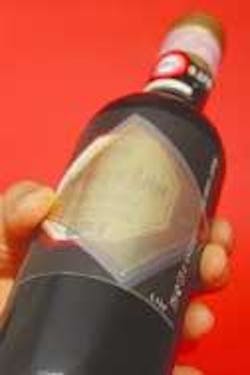Organic materials yield flexible solid-state scanner

In conventional scanner technology, a linear array of photodetectors moves across a page to capture images or characters. At the IEEE International Electron Devices Meeting (San Francisco, CA; Dec. 13-15, 2004), however, a research team from the University of Tokyo led by Takao Someya and Takayasu Sakurai described a flexible scanner based on organic photodiode and transistor technology. Instead of mechanical or optical components, such as focusing lenses, their “sheet image scanner” consists of a 2-D array of organic photodiodes integrated with organic field-effect transistors on a plastic film in which the transistors scan the photodiodes electronically, avoiding the need for moving parts or a line-by-line mechanical scanning procedure.
Currently, the flexible, pocket-size device has an effective scanning area of 4 × 4 in. with a resolution of 36 dots per inch (dpi), which the researchers said could potentially be increased to 250 dpi. The photodetectors detect black and white tones by sensing the difference in reflected light from the dark and bright areas of an image, and the thin-film pentacene transistors have an 18-µm channel length and electron mobility of 0.7 cm2/V-s. Based on the potential mobility and flexibility of scanning systems stemming from this technology, the researchers envision novel applications such as scanning the bent pages of open books or labels on bottles.
To date, potential applications such as flexible displays and printable wireless optoelectronic surfaces—often referred to as electronic paper—have motivated the development of organic transistors, according to Someya and Sakurai, who have also demonstrated a large-area, flexible, pressure-sensor matrix potentially useful as electronic artificial skin for future generations of robots. Organic semiconductor technology has been pursued for such applications because of its suitability for manufacturing on large-area plastic substrates at ambient temperatures using printing or roll-to-roll processes and at much lower cost than silicon technology.
The drawback of carbon- rather than silicon-based organic-transistor technology, however, is relatively slow switching speeds, which the University of Tokyo research team addressed with a “double word-line and bit-line structure” that reduces the typical time delay of the circuit by a factor of five and the power consumption by a factor of seven. The structure requires stacking two layers of organic transistors, using laser drilling to form a 3-D circuit. The researchers plan to present their 3-D organic integrated circuit this month at the IEEE International Solid-State Circuits Conference (San Francisco, CA; Feb. 6-10).
About the Author
Hassaun A. Jones-Bey
Senior Editor and Freelance Writer
Hassaun A. Jones-Bey was a senior editor and then freelance writer for Laser Focus World.